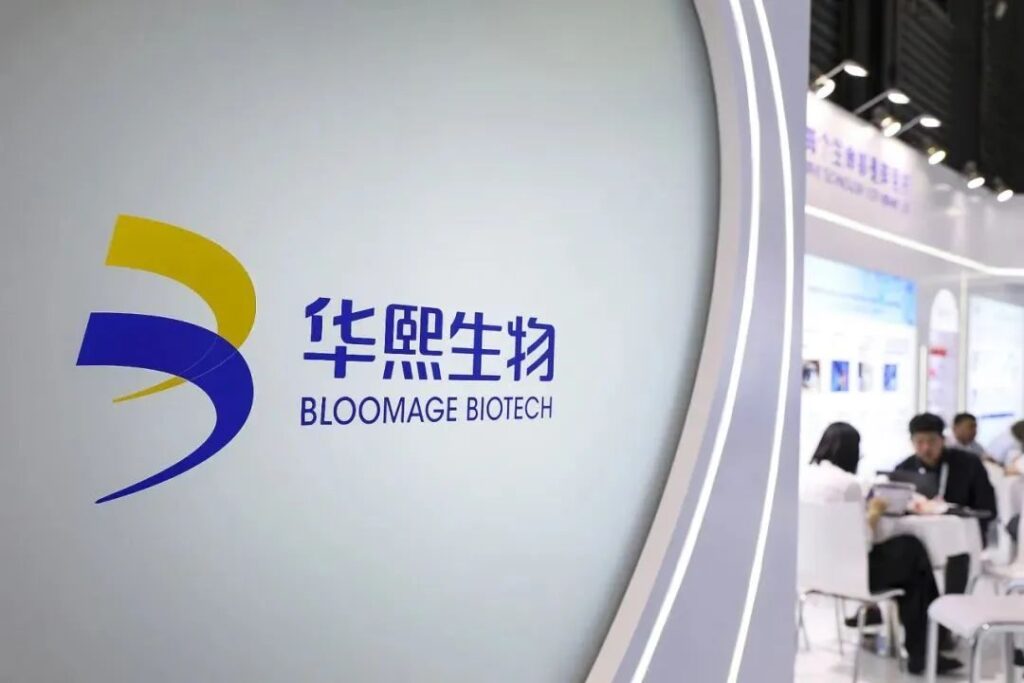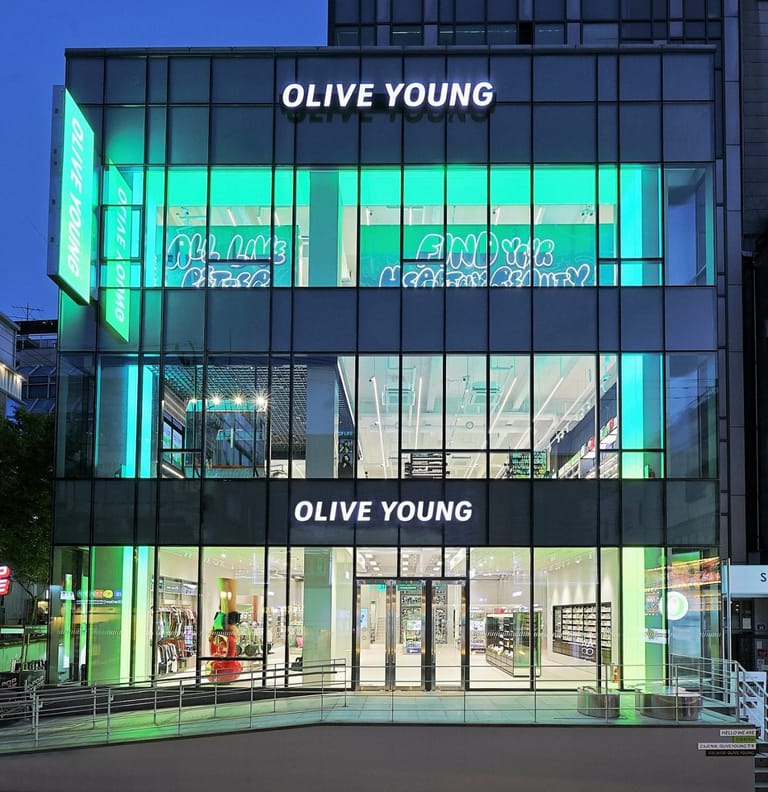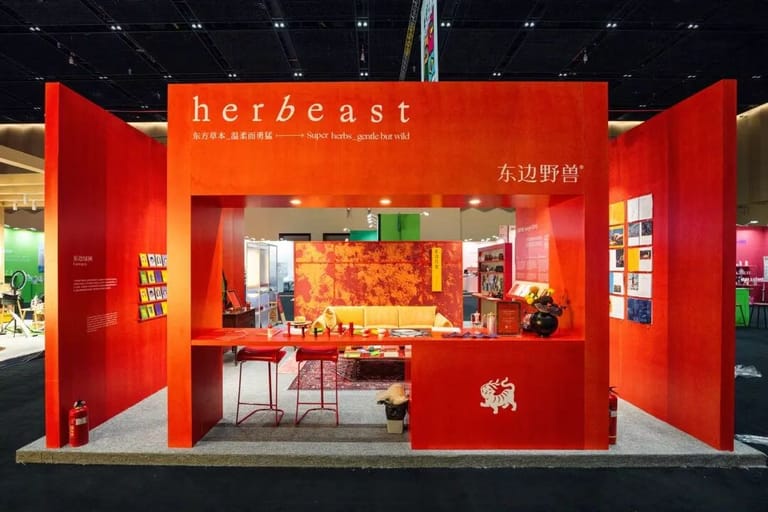The New Face of Beauty: China’s Brands Rewrite the Playbook
By
Hazel Jia

Published on
July 2, 2025
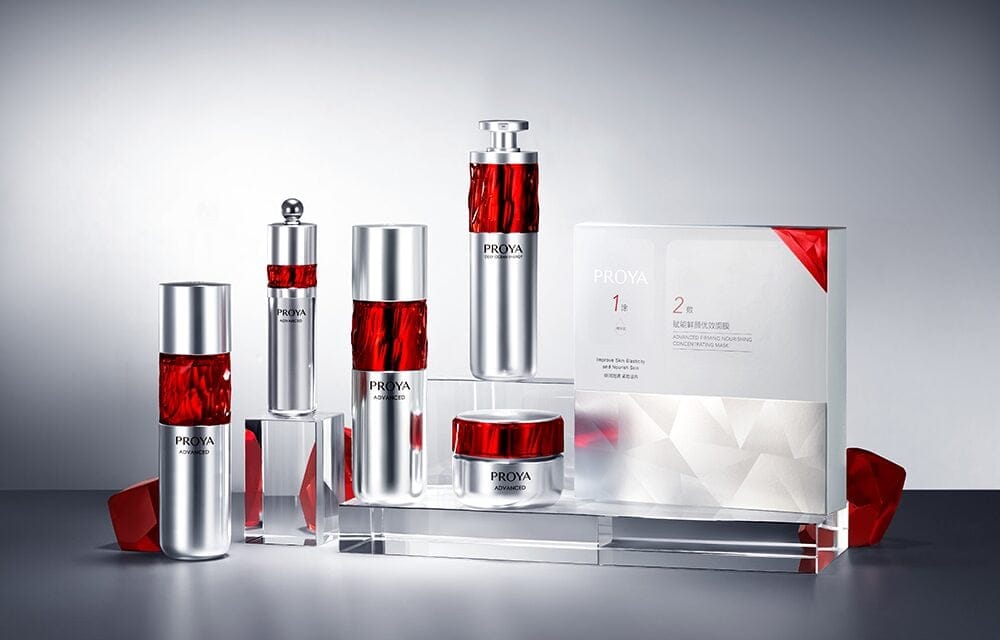
Despite a modest 1.1 percent decline in overall cosmetics retail sales—totaling $60.4 billion—2024 . .Face of Beauty marked a defining year for China’s domestic beauty industry. While macroeconomic uncertainty continued to cast a shadow over discretionary spending, leading local brands delivered resilient, and in many cases, record-breaking financial results. The year not only underscored the growing maturity and competitiveness of China’s homegrown players, but also revealed deepening fault lines within the sector.
Proya became the first domestic beauty company to exceed $1.52 billion in annual revenue, setting a new benchmark for scale and ambition. Meanwhile, six companies crossed the $700 million mark—more than any year prior—pushing the entry threshold for the top ten to approximately $362 million. This divergence of performance highlighted a new competitive landscape: one defined not just by scale, but by profitability, R&D investment, and the ability to build multi-brand ecosystems in an increasingly polarized market.
Proya Group
Founded in 2006 by Hou Juncheng, a Tsinghua University graduate, Proya Group is a Hangzhou-based cosmetics company that has emerged as a leading force in China’s domestic beauty scene. It went public in 2017 on the Shanghai Stock Exchange and currently operates a multi-brand portfolio, including Proya(its flagship), Timage (color cosmetics), Off & Relax, and Uzero. Although Proya’s business remains largely domestic and digitally driven, its scale and aggressive R&D spending suggest ambitions for international growth in the future.
In 2024, Proya Group reported revenue of $1.52 billion, marking a 21 percent year-on-year increase, with net profits rising 30 percent to $ 218 million. The flagship Proya brand generated $1.21 billion, while Timage recorded $ 168 million. Over 95 percent of total revenue came from online direct-to-consumer channels, with digital retail contributing $1.14 billion. The company also invested $29.6 million into R&D.
Shanghai Jahwa
Shanghai Jahwa is one of China’s oldest personal care companies, with origins tracing back to 1898. It became publicly listed in 2001 and manages a portfolio of widely recognized domestic brands, including Herborist (herbal skincare), Six God (body care), Dr. Yu (dermatological skincare), and various maternal and baby-care products. While most of its brands are not yet distributed globally, Herborist previously attempted international expansion, including a short-lived foray into Europe.
In 2024, Jahwa’s revenue fell to $787 million, a 14 percent drop from the previous year. The company recorded a net loss of $117 million, its first since listing in 2001. The downturn was primarily due to a goodwill impairment focused on its struggling maternal and baby-care division. However, Jahwa is actively pursuing a turnaround strategy that includes leveraging Douyin livestreaming, upgrading digital infrastructure, and restructuring internally.
Giant Biogene
Giant Biogene is a privately held Chinese skincare company founded in the early 2000s and best known for its specialization in functional skincare. Its leading brands include Comfy and ColliGence, which target consumers seeking advanced dermatological solutions. While the company has yet to achieve significant international distribution, its strong domestic presence and biotech focus make it one of the most profitable skincare firms in the country.
In 2024, Giant Biogene posted impressive growth, with revenue reaching $781 million, up 57.2 percent year-on-year. Net profit rose 42.1 percent to $290 million, reflecting its strong margin structure (gross margin: 82 percent; net margin: 37.2 percent). The company allocated $15 million to R&D, representing 1.9 percent of total revenue.
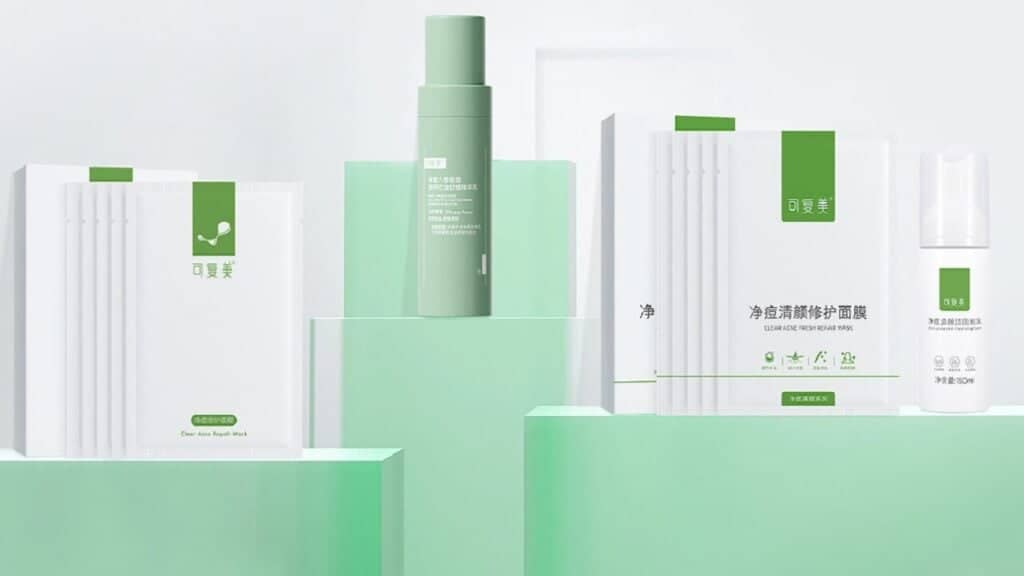
Botanee
Founded in Yunnan province, Botanee is the parent company of Winona, a dominant force in the sensitive skincare segment in China. In addition to Winona, the group manages several sub-brands including Winona Baby, Aoxmed (a functional aesthetics label), and Beforteen (targeting Gen-Z consumers). Botanee is listed on the Shenzhen Stock Exchange and remains majority-owned by its founding team and affiliated entities.
Botanee recorded revenue of $807 million in 2024, reflecting a 3.9 percent year-on-year increase. However, net profit declined 33.5 percent to $70.8 million. Despite the downturn, Winona maintained over 20 percent market share on Tmall and continued to lead the sensitive skincare category. The company invested $47.5 million in R&D, particularly focused on botanical innovation. Winona Baby and Beforteen delivered strong double-digit growth, bolstering the group’s long-term diversification.
Chicmax
Chicmax is the company behind Kans, a well-established skincare brand launched in the early 2000s. Headquartered in Shanghai, Chicmax also manages One Page, a fast-growing brand focused on young mothers and sensitive skincare. Though still privately held, Chicmax has significantly increased its market presence in recent years through aggressive short-video marketing on platforms like Douyin.
In 2024, Chicmax generated revenue of $956 million, a 62.1 percent year-on-year increase. Net profit rose 74 percent to $113 million. Kans contributed $ 787 million, while One Page grew 146 percent to reach $53 million. The company’s success is closely tied to its mastery of short-video e-commerce and its in-house R&D strength, which includes proprietary peptides such as Cyclopeptide-9.
Bloomage Biotech
Founded in 2000 by entrepreneur Zhao Yan, Bloomage Biotech is China’s foremost supplier of hyaluronic acid (HA) and bioactive skincare ingredients. Listed on the Shanghai Stock Exchange, Bloomage serves over 4,000 clients across more than 70 countries, and operates subsidiaries in the United States, France, Japan, South Korea, and Singapore. It is a rare example among Chinese beauty companies with extensive international reach, although most of its revenue still comes from ingredient sales rather than consumer-facing brands.
In 2024, Bloomage reported revenue of $756 million, down 11.6 percent from the previous year. Net profit declined steeply to $24.5 million, a 70.6 percent drop. While its skincare division fell 31.6 percent, raw material and medical terminal businesses remained relatively stable. The company spent $65.6 million on R&D, equivalent to 8.68 percent of total revenue, and underwent internal restructuring to better align its workforce with future biotech priorities. Its ownership is largely held by private equity (around 66 percent), with Huaxi Xinyu Investment being the largest shareholder.
